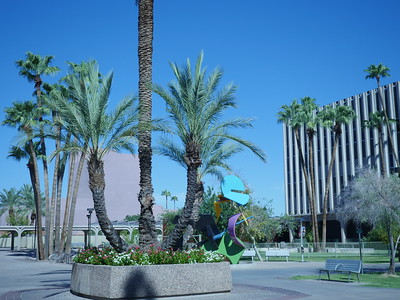Alumna gift supports early-career education faculty

Fifty years after graduating from ASU’s Mary Lou Fulton Teachers College, her time at the college is still fresh in Elizabeth Foyt’s mind. “I’m still in contact with my roommate — we both live in Las Vegas and meet up occasionally,” says Foyt, adding, “I really believe that my education at ASU is the foundation of my successful life.”
Foyt graduated from MLFTC in the spring of 1971 with a bachelor’s degree in Elementary Education and a minor in Library Science. One week after finishing her coursework, Foyt began teaching fourth grade at a school district in the area known as the “Golden Corridor,” a small community between Phoenix and Tucson.
After a year-and-a-half teaching, Foyt returned to Las Vegas. She was contacted by the Clark County School District and offered a position as a library media specialist at the middle school, which she held for 32 years. “ASU’s reputation, even 50 years ago, was stellar,” Foyt says. “Everyone was impressed if you went to ASU and it was widely recognized in education.”
Foyt’s education degree granted her a diverse career. In addition to working in schools, she wrote a society column for Greenspun Media Group, wrote a column for the Las Vegas Sun and worked as a journalist for several newspapers and affiliated magazines. She was also community relations director for a local public radio station, an education consultant for Las Vegas PBS and did a stint as a political consultant. “I honed all of these skills as an undergraduate at ASU, with the help of strong women faculty instructors in particular,” she says. She specifically credits Laurel Boetto, Professor Emeritus of Education, and Professor Carmen O’Brien.
In 2000, Foyt retired. But she’s not sitting down. “I’m reflecting on: How did I get here? And, wasn’t I a lucky girl?” She now serves a library trustee for a district with 25 facilities, remains active in politics and volunteers with several charitable organizations. Foyt and her significant other, John Wanderer, an alum of ASU’s Sandra Day O’Connor School of Law (’73) visit Arizona and the ASU Tempe campus often.
Foyt also recently funded the professional development of early-career faculty at MLFTC. The recipients of her gift, Shyla González-Doğan and Carlos Casanova, are both first-year assistant professors in MLFTC’s Education Studies program. Because they began their tenure in the midst of a global pandemic, it’s fair to say the start of their careers looked much different than they imagined, making Foyt’s gift all the more appreciated.
González-Doğan’s research focus is primarily on identity formation and practices of inclusion and exclusion in community-based spaces. One such place: refugee communities and diasporas. González-Doğan is interested in how refugees and students are able to work on identity formation, despite their circumstances.
“I am grateful to Elizabeth Foyt for providing me with the opportunity for more professional development and training, which is key to remaining aware of new ideas, engaging with colleagues and furthering my career goals. Because of this gift, I will be able to attend a wider array of professional programs and conferences, many of which I’m already registered for. I look forward to the day when I can make a similar contribution to the professional advancement of others,” says González-Doğan.
Casanova’s research interests include social issues and social justice education, and critical education for sustainable development. Throughout his education experience in a working-class community in Michigan, Casanova didn’t see Latinx teachers, and the curriculum was not culturally responsive or inclusive. As a result, he became actively involved in community-based organizations, working as an urban community educator.
“The gift from Elizabeth Foyt helped cover the registration cost for me to present my scholarship at the Comparative and International Education Society Annual Conference. As an early career faculty member, presenting my research at international conferences helps to foster future research collaborations and share my research with international scholars and practitioners,” says Casanova.